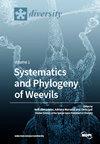马科部分分类群牙釉质超微结构分析
IF 2.1
3区 生物学
Q2 BIODIVERSITY CONSERVATION
引用次数: 0
摘要
本文通过对马臼齿牙釉质超微结构的研究,提出了马“tarpan”类群的历史和进化认识。运用数学方法加强分析。对来自乌克兰更新世地区的马(tarpan)、E. latipes和E. hydruntinus,乌克兰切尔诺贝利禁区的E. przewalskii和来自波兰Roztocze国家公园的E. caballus形成sylvaticus(波兰konik)的牙釉质进行了扫描显微镜检查。对釉质结构进行了测量,包括棱柱(PE)和柱间基质(IPM),以k指数作为它们的比率,根据釉质类型(I, II, III)进行了分类。研究结果证实,这些类群的釉质晶体结构根据属进化,饮食和环境条件而变化,形成了釉质的形态特征。通过分析,确定了集群,从而可以重建研究小组之间的关系。结果揭示了物种之间的明显差异,使它们能够在一个既定的物候图中分类。出现了两个主要集群:一个由来自不同地区的灭绝小马组成,另一个由现代马组成。值得注意的是,晚更新世欧洲种E. latipes与后一类群表现出密切的亲缘关系。本文章由计算机程序翻译,如有差异,请以英文原文为准。
Teeth Enamel Ultrastructural Analysis of Selected Equidae Taxa
This paper presents historical and evolutionary insights into the “tarpan” group of small horses by examining molar tooth enamel ultrastructure. Mathematical methodologies were applied to enhance the analysis. Tooth enamel from species such as Equus gmelini (tarpan), E. latipes, and E. hydruntinus from Pleistocene Ukrainian localities, E. przewalskii from the Chornobyl Exclusion Zone in Ukraine, and E. caballus form sylvaticus (Polish konik) from Roztocze National Park, Poland, underwent scanning microscope examination. Measurements of enamel structures, including prisms (PE) and interprismatic matrix (IPM), were conducted, with the K-index used as their ratio, categorized by enamel type (I, II, III). The findings confirmed that the crystal structures of enamel in these horse groups vary based on genus evolution, diet, and environmental conditions, shaping the enamel’s morphological features. Through analysis, clusters were identified, allowing for potential reconstructions of relationships among study groups. The results revealed distinct differences between species, enabling their classification within an established phenogram. Two primary clusters emerged: one consisting of extinct small horse forms from diverse localities and another grouping modern forms. Notably, the Late Pleistocene European species E. latipes showed close affinities to the latter cluster.
求助全文
通过发布文献求助,成功后即可免费获取论文全文。
去求助
来源期刊

Diversity-Basel
Environmental Science-Ecological Modeling
CiteScore
3.40
自引率
12.50%
发文量
925
审稿时长
11 weeks
期刊介绍:
Diversity (ISSN 1424-2818) is an international and interdisciplinary journal of science concerning diversity concept and application, diversity assessment and diversity preservation. It is focused on organismic and molecular diversity. It publishes reviews, regular research papers and short notes in the regular issues. Related news and announcements are also published. Our aim is to encourage scientists to publish their experimental and theoretical results in as much detail as possible. Therefore, there is no restriction on the length of the papers. Full experimental details must be provided so that the results can be reproduced.
 求助内容:
求助内容: 应助结果提醒方式:
应助结果提醒方式:


